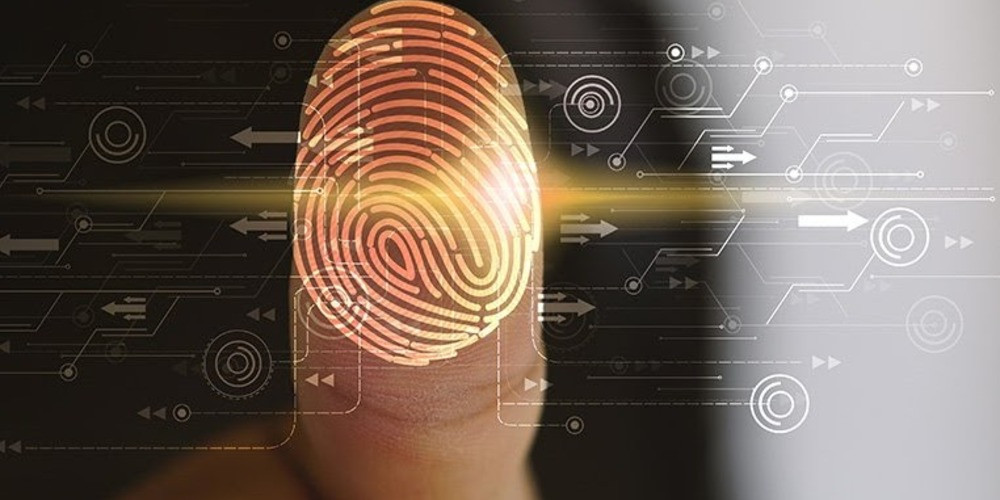Six Steps to Safeguarding Your Digital Identity

In today's interconnected world, each data breach chips away at our digital privacy. Consider the notable breach at AT&T, which exposed Social Security numbers and other sensitive personal information, making identity theft a significant threat. Following this incident, the proportion of users with compromised Social Security numbers in our databases skyrocketed from less than 1 percent to nearly 15 percent. The risks are exacerbated when such sensitive information becomes publicly accessible on the internet, not just on the dark web, which requires special software to access. These exposures increase the likelihood of misuse and emphasize the necessity of protecting our digital identities.
The Threat of Identity Theft
The most pressing threat from compromised data is identity theft. Malicious actors can access email, bank, and credit card accounts to impersonate victims. This can involve resetting passwords and taking control of phone numbers to bypass text message confirmations. Furthermore, armed with personal details, thieves might take out loans or credit cards in your name, a common and damaging form of identity theft. The danger extends beyond online fraud; stolen information can lead to physical crimes, putting victims at severe risk. Thus, it is vital to take robust measures to protect against these escalating threats.
1. Use Multi-Factor Authentication Everywhere
Implementing multi-factor authentication (MFA) ubiquitously is paramount in reducing the likelihood of account breaches. Some sources suggest that accounts with MFA are 99.9 percent less likely to be compromised. By requiring additional verification steps, such as codes sent via text, email, or USB authenticator keys, MFA significantly enhances account protection and guards against compromised credentials.
2. Manage Password Risk
Ensure the security of your key online and financial accounts by using distinct, robust, and lengthy passwords. Strive for a minimum of 15 characters, incorporating a blend of uppercase and lowercase letters, numbers, and symbols. Utilize password managers to safely store and handle these intricate passwords, as they can also generate strong passwords for you. Furthermore, consider creating a separate "junk" email for non-essential sign-ups, enhancing security and reducing the potential fallout from data breaches on your primary accounts.
3. Use Protection Across Your Devices

Utilize trusted antivirus (AV) software on both desktop and mobile devices. Many people overlook the importance of AV on their phones, yet these devices often store credit card information and provide access to key accounts. Comprehensive AV protection across all devices is crucial for safeguarding sensitive data.
4. Secure Your Surfing
Be mindful of the information you share online and with whom. Use incognito mode when possible, and provide false information where appropriate. A secondary email address, along with an alternate name, date of birth, and security question answers, can further protect your primary accounts. Additionally, when using public Wi-Fi or even at home, a virtual private network (VPN) can mask your location and encrypt data shared on the local network.
5. Regularly Monitor
Continually monitor your online accounts and finances for suspicious activity. Identity Theft Protection services can help keep your data secure by scanning databases for any instances of your email address being linked to data breaches and alerting you to potential security risks. These services provide an efficient way to stay informed about the status of your personal information.
6. Stay Vigilant
Remain alert to phishing and social engineering schemes, including deceptive emails or calls. Verify suspicious communications by contacting the company or organization directly through their official website, avoiding links or contact information provided in unsolicited messages. Reflect on whether you initiated the contact or if someone reached out to you, and proceed with caution if it’s the latter. Despite best efforts, scams can still occur. Promptly reacting to data breaches can prevent further damage and monetary loss. Identifying and addressing online weak spots, such as predictable passwords or a lack of MFA, is essential for robust identity protection.
Adopting a careful and thorough strategy for safeguarding your identity ensures that even if your information is breached, you have preemptive steps implemented to shield your confidential data. These actions help defend your online presence against cyber hazards, offering reassurance in an ever-more connected world.
Latest posts
See more-
![The Last of Us Part II: In-Depth Character Analysis and Storyline Exploration]() Editor’s Choice
2024-08-11
The Last of Us Part II: In-Depth Character Analysis and Storyline Exploration
The Last of Us Part II is an action-adventure video game that has gained significant popularity since its inception. Developed with immense creative prowess by...
Editor’s Choice
2024-08-11
The Last of Us Part II: In-Depth Character Analysis and Storyline Exploration
The Last of Us Part II is an action-adventure video game that has gained significant popularity since its inception. Developed with immense creative prowess by...
-
![CrossCode Developer Announces Alabaster Dawn, Enters Early Access in Late 2025]() News
2024-08-12
CrossCode Developer Announces Alabaster Dawn, Enters Early Access in Late 2025
In 2021, Radical Fish Games initially introduced a new action RPG titled Project Terra. Now, they have officially named it Alabaster Dawn and announced that...
News
2024-08-12
CrossCode Developer Announces Alabaster Dawn, Enters Early Access in Late 2025
In 2021, Radical Fish Games initially introduced a new action RPG titled Project Terra. Now, they have officially named it Alabaster Dawn and announced that...
-
![Alabaster Dawn Planned to Have 30-60 Hours of Playtime, Demo Launching in Early 2025]() News
2024-08-13
Alabaster Dawn Planned to Have 30-60 Hours of Playtime, Demo Launching in Early 2025
Radical Fish Games has made an exciting announcement regarding their upcoming action RPG, Alabaster Dawn, which is set to enter early access in 2025. In...
News
2024-08-13
Alabaster Dawn Planned to Have 30-60 Hours of Playtime, Demo Launching in Early 2025
Radical Fish Games has made an exciting announcement regarding their upcoming action RPG, Alabaster Dawn, which is set to enter early access in 2025. In...
Latest Reviews
See more-
![]() Action
Cult of the Lamb
Action
Cult of the Lamb
-
![]() Action
WILD HEARTS™
Action
WILD HEARTS™
-
![]() Casual
Gacha Club
Casual
Gacha Club
-
![]() Action
Call of Duty®: Warzone™ 2.0
Action
Call of Duty®: Warzone™ 2.0
-
![]() Action
Gacha Cute
Action
Gacha Cute
-
![]() Action
Cuphead - The Delicious Last Course
Action
Cuphead - The Delicious Last Course










